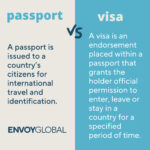Jamaica, a jewel of the Caribbean, is renowned for its stunning beaches, vibrant culture, and warm hospitality. However, like many destinations, it’s essential for travelers to be aware of the current safety and health landscape. This updated Jamaican Travel Advisory provides crucial information for anyone planning a trip to the island, focusing on how to stay safe and healthy during your visit.
The U.S. Department of State has issued an advisory urging travelers to reconsider travel to Jamaica due to crime and to exercise increased caution regarding medical services. While tourist areas often experience lower crime rates compared to other parts of the country, it’s vital to understand the risks and take necessary precautions.
Understanding the Crime Risks in Jamaica
Violent crime is a significant concern throughout Jamaica, with the nation reporting one of the highest homicide rates in the Western Hemisphere. Travelers should be aware that armed robberies and sexual assaults are common occurrences. It’s important to note that even in resort areas, incidents can happen.
The U.S. Embassy in Jamaica regularly receives reports of sexual assaults, including cases involving U.S. citizen tourists at resorts. Furthermore, U.S. citizens have reported experiencing slow or unsatisfactory responses from local authorities when dealing with serious criminal incidents. Even when arrests are made, there’s no guarantee of prosecution or a timely resolution.
Healthcare Considerations for Visitors
Travelers should also be prepared for differences in healthcare standards compared to the United States. The level of medical care available in Jamaica may not be the same, including emergency service response times and routine medical attention.
Private hospitals in Jamaica typically require upfront payment before admitting patients and may have limitations in providing specialized care. Ambulance services may not always be readily available, especially in rural areas, and may not be staffed with paramedics. It’s highly recommended that visitors bring an adequate supply of any necessary prescription medications, as obtaining common medications like insulin can be challenging.
Traveler’s insurance, including medical evacuation coverage, is strongly recommended for anyone traveling to Jamaica. It’s crucial to understand that U.S. Medicare and Medicaid do not extend coverage overseas, and many foreign hospitals and doctors do not accept U.S. health insurance. Air ambulance services to the United States can be very expensive, potentially ranging from $30,000 to $50,000.
Areas to Avoid in Jamaica: Off-Limits Zones for U.S. Embassy Personnel
Due to safety concerns, there are specific areas in Jamaica that are off-limits for U.S. embassy personnel. These areas are designated as Level 4: Do Not Travel zones, indicating a high level of risk. While these restrictions are specifically for embassy staff, they serve as important indicators of areas where travelers should exercise extreme caution or avoid altogether.
These off-limits locations across various parishes include:
- St. Ann’s Parish: Steer Town and the Buckfield neighborhood near Ocho Rios.
- St. Catherine’s Parish: Spanish Town, Central Village, and parts of Portmore including Naggo Head, New Land, Old Braeton, Portmore Lane, Gregory Park, and Waterford.
- Clarendon Parish: All of Clarendon Parish, except when using the T1 and A2 highways to pass through.
- St. Elizabeth’s Parish: Vineyard District Community, between Salt Spring and Burnt Savanna.
- Hanover Parish: Logwood and Orange Bay.
- St. James Parish/Montego Bay: Inland side of the A1 highway and The Queen’s Drive from San San to Harmony Beach Park.
- Kingston and St. Andrew Parish: Cassava Piece, Duhaney Park, Grants Pen, Standpipe, Swallowfield, Elleston Flats, August Town, and downtown Kingston (between Mountain View Avenue and Hagley Park Road, and south of Half Way Tree and Old Hope Roads), including Arnett Gardens, Cockburn Gardens, Denham Town, Olympic Gardens, Seaview Gardens, Trench Town, and Tivoli Gardens.
- Manchester Parish: Green Vale, Gray Ground, Red Ground, and Vineyard neighborhoods of Mandeville.
- St. Thomas Parish: Black Lane neighborhood in Seaforth, Grands Penn, Church Corner neighborhood near Yallahs, and the Town of Yallahs (except when passing through on the main highway).
- Trelawny Parish: Clarks Town.
- Westmoreland Parish: Russia community in Savanna-la-Mar, Morgan Bay, Kings Valley, The Whitehall, Bethel Town, and Red Ground neighborhoods of Negril.
Essential Safety Tips for Traveling to Jamaica
If you decide to proceed with your travel plans to Jamaica despite the advisory, it is crucial to take proactive steps to minimize risks and ensure your safety. Here are key recommendations:
- Strictly avoid bringing firearms or ammunition into Jamaica. Penalties for firearms offenses, even unintentional, are severe, including lengthy prison sentences.
- Refrain from walking or driving at night.
- Avoid using public buses for transportation.
- Steer clear of secluded places and situations where you might be vulnerable.
- Do not physically resist if you are targeted in a robbery attempt. Your safety is paramount.
- Maintain heightened awareness of your surroundings and keep a low profile. Avoid drawing unnecessary attention to yourself.
- Enroll in the Smart Traveler Enrollment Program (STEP) to receive important alerts and facilitate location in case of emergency. You can enroll at www.step.state.gov.
- Stay informed by following the Department of State on Facebook (https://www.facebook.com/travelgov) and X/Twitter (https://x.com/statedept?lang=en).
- Thoroughly review the State Department’s Country Specific Information for Jamaica for the most up-to-date details.
- Develop a contingency plan for potential emergencies. Familiarize yourself with the Traveler’s Checklist.
- Consult the CDC page for the latest Travel Health Information relevant to your trip.
Conclusion: Prioritizing Safety and Informed Travel to Jamaica
While Jamaica offers a captivating travel experience, it’s essential to be fully informed about the current Jamaican Travel Advisory and the associated risks. By understanding the concerns related to crime and healthcare, and by diligently following safety recommendations, travelers can make informed decisions and take proactive steps to protect themselves. Always prioritize your safety and well-being when traveling, and ensure you stay updated on the latest travel advisories and information from official sources.

